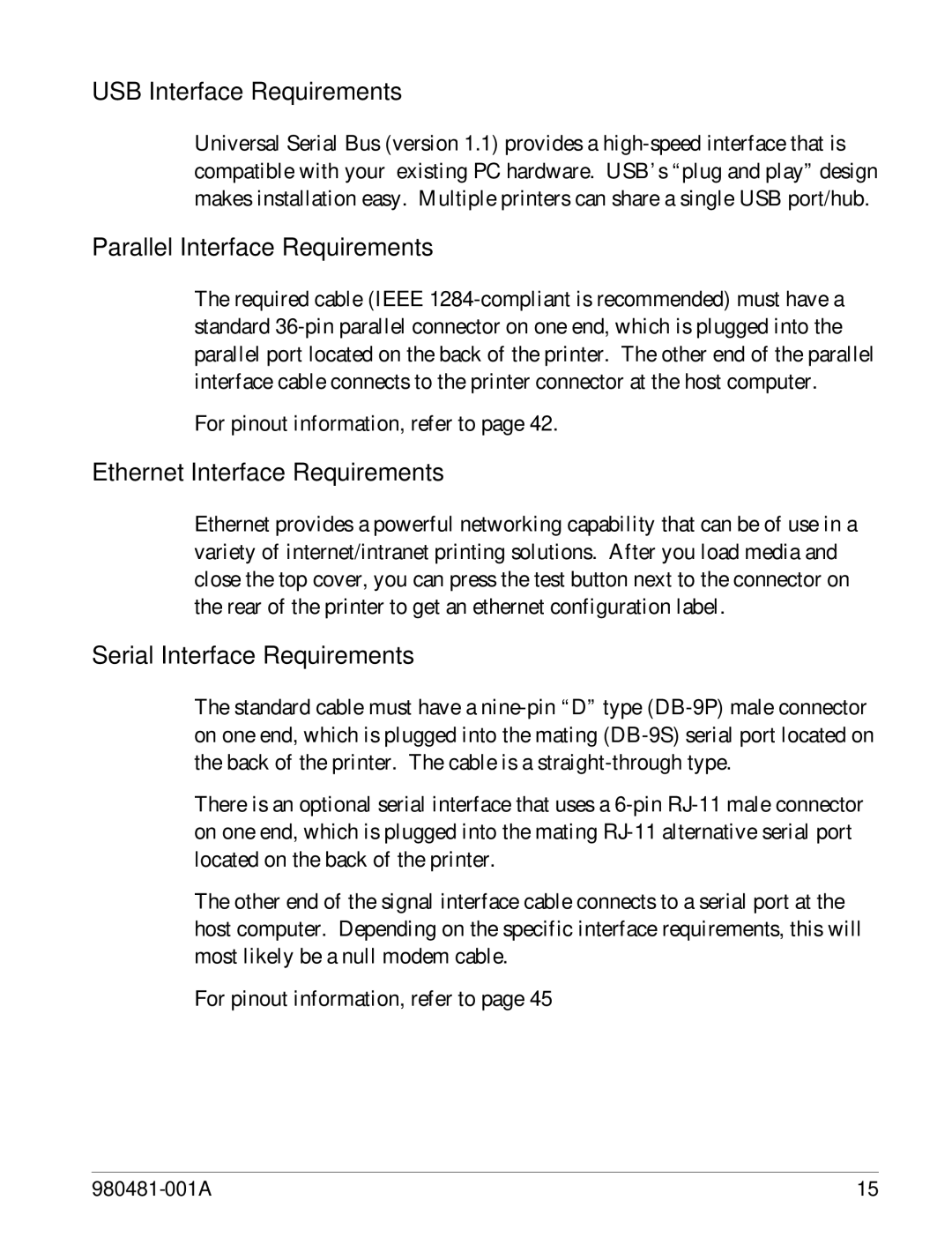USB Interface Requirements
Universal Serial Bus (version 1.1) provides a
Parallel Interface Requirements
The required cable (IEEE
For pinout information, refer to page 42.
Ethernet Interface Requirements
Ethernet provides a powerful networking capability that can be of use in a variety of internet/intranet printing solutions. After you load media and close the top cover, you can press the test button next to the connector on the rear of the printer to get an ethernet configuration label.
Serial Interface Requirements
The standard cable must have a
There is an optional serial interface that uses a
The other end of the signal interface cable connects to a serial port at the host computer. Depending on the specific interface requirements, this will most likely be a null modem cable.
For pinout information, refer to page 45
| 15 |
